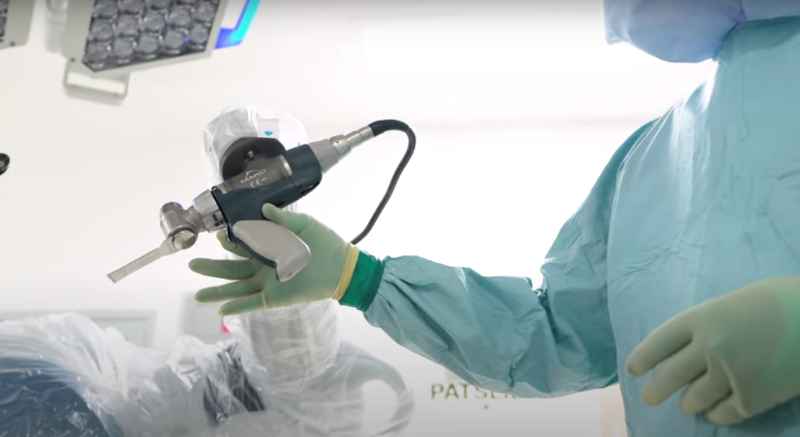The latest data from the Private Healthcare Information Network (PHIN) – the independent, not-for-profit company which collects data to help patients make more informed decisions – shows that there has been a dramatic rise in the number of robot-assisted surgeries taking place in the UK.
Between 2016 and 2022, there was an overall rise of 341% across the NHS and independent sector in robot-assisted surgeries. In the independent sector alone, the growth was even more significant at 928%.
Dr Ian Gargan, PHIN Chief Executive, said:
“In simple terms, robot-assisted surgery refers to a type of surgery where a robot is used to assist the surgeon in performing a procedure. With extensive planning, involving surgical technicians, the robot assists the surgeon, allowing them to make the most of their time and skills.
“The robot provides precise movements and enhances the surgeon's capabilities, often allowing for more precision and flexibility in complex surgeries. It's like having a high-tech assistant helping the expert surgeon during the operation.”
Since 2016 there have been nearly a quarter of a million (238,000) robot-assisted procedures.
- In 2022 there were 49,000 procedures carried out using a robot, compared to 11,000 in 2016.
- There were 48,000 robotically-assisted procedures in the first three quarters of 2023 (the latest available data) so the UK is on track to have had a record year when all the data is collected.
- The number of robot-assisted procedures has increased every year since 2016 (except Covid-19 affected 2020) in both the NHS and independent sector.
As well as the overall volume, the variety of procedures using robots for assistance is increasing.
Up to the end of 2022, nationally, robotic-assisted surgery was most used for prostate related procedures at 43.7k. The next highest was for pelvic lymph nodes operations at 12.1k procedures.
In the same period, in the independent sector, surgical procedures to restore the function of a joint (e.g. a knee or a hip) were the most popular robotic-assisted procedure at 3.7k procedures. Nuffield Health used robots the most (1.6k) for this type of procedure. HCA Healthcare UK carried out the largest volume of robot-assisted procedures overall.
Dr Gargan, added:
“We’re very pleased to be able to use our unique dataset to help increase transparency and show what is happening in the private healthcare sector. This can help both patients and providers make more informed choices.
“Our exclusive data shows a rapidly increasing use of robots by surgeons and is just one example of the insights we provide. See our website www.phin.org.uk for more information.
“Having robot assistance can aid accuracy with less invasive surgical approaches possible, and we are seeing efficiencies with improved recovery rates, fewer complications and, therefore, opportunities to reduce waiting lists.
“The robots are most often used on the highest volume procedures, such as hip and knee replacements, so being able to use them to speed up procedures and reduce complications will help surgeons to conduct more of the types of operations most people are waiting for.
“Looking at the trajectory in the growth of this type of surgery so far and knowing what is possible, we don’t see why there wouldn’t continue to be huge increases in the use of robotic assistants. Although they are expensive, the private hospitals have the budgets to purchase them and ensure that as many patients as possible are treated as soon as possible.
“I’ve recently been observing surgeons conducting robot-assisted procedures, and as an orthopaedic surgeon myself, I find the process fascinating and inspiring.
“Overall, the surgical and economic benefits point toward greater use of robots imminently especially in orthopaedics and urology. As artificial intelligence develops it can only further assist this valuable new technology.”
PHIN publishes a wide range of healthcare data to support the growing number of people considering private treatment. According to PHIN’s data there were over 800,000 private hospital admissions in the past year.
Image courtesy of The Fortius Clinic, London
